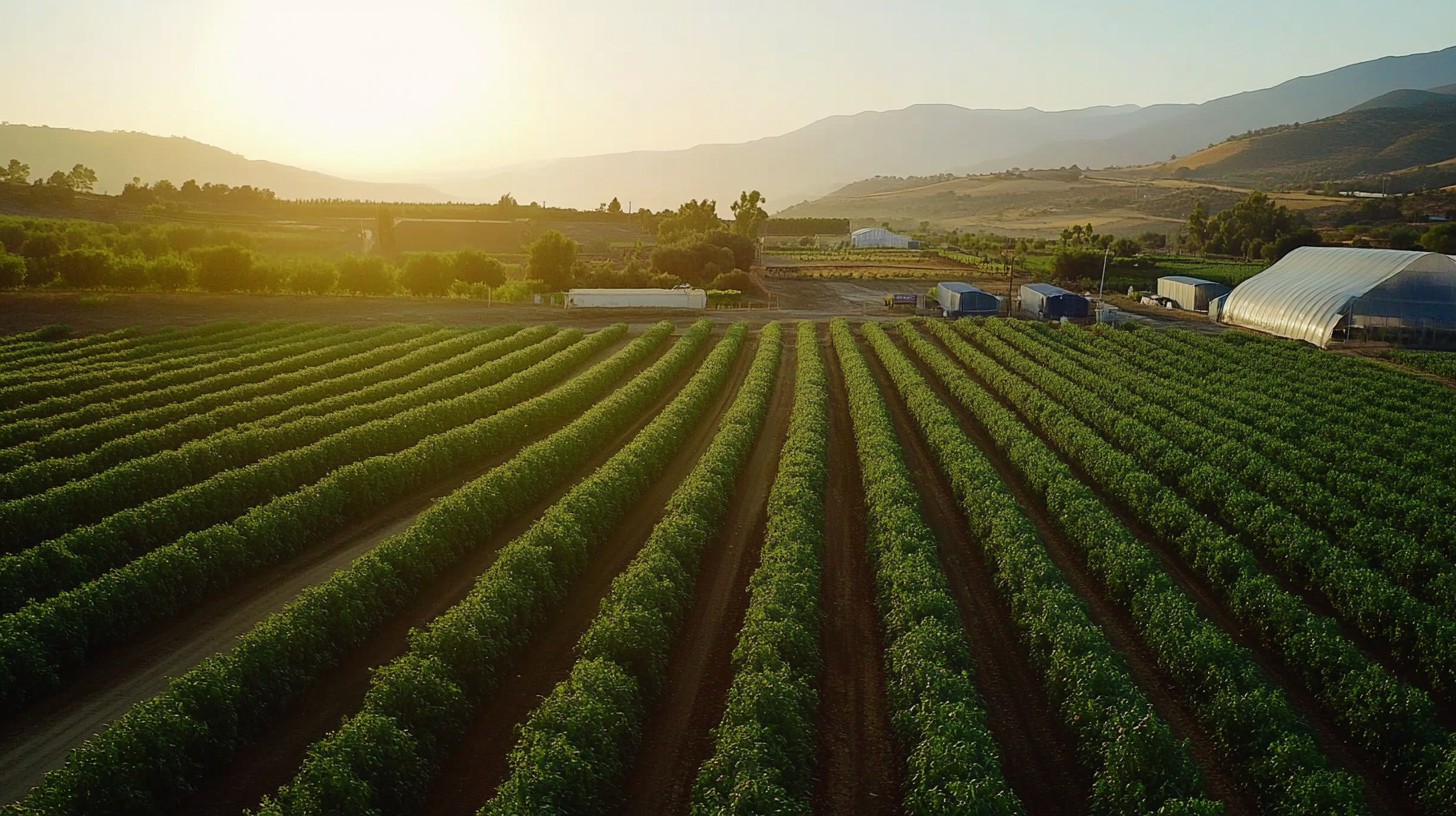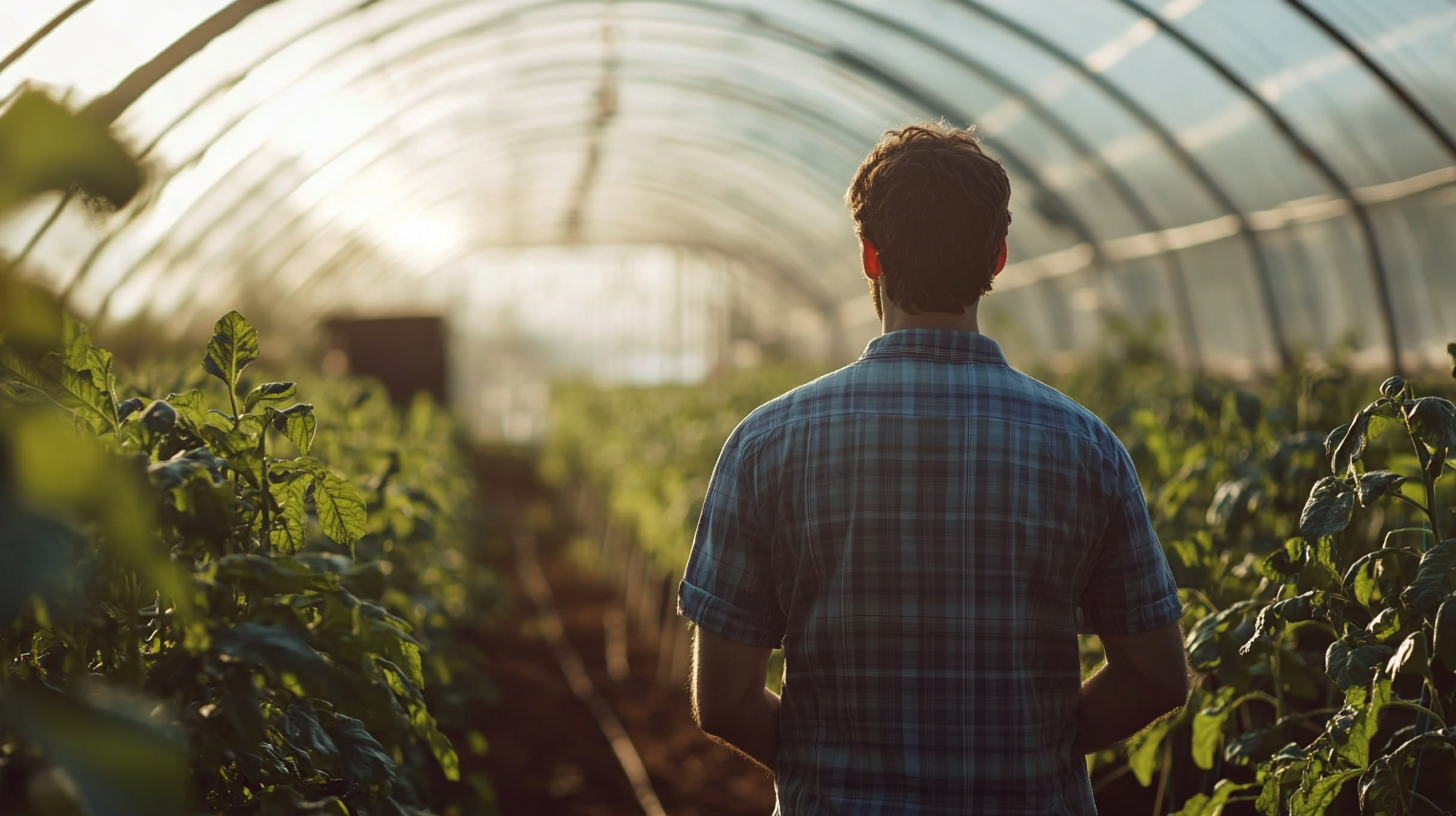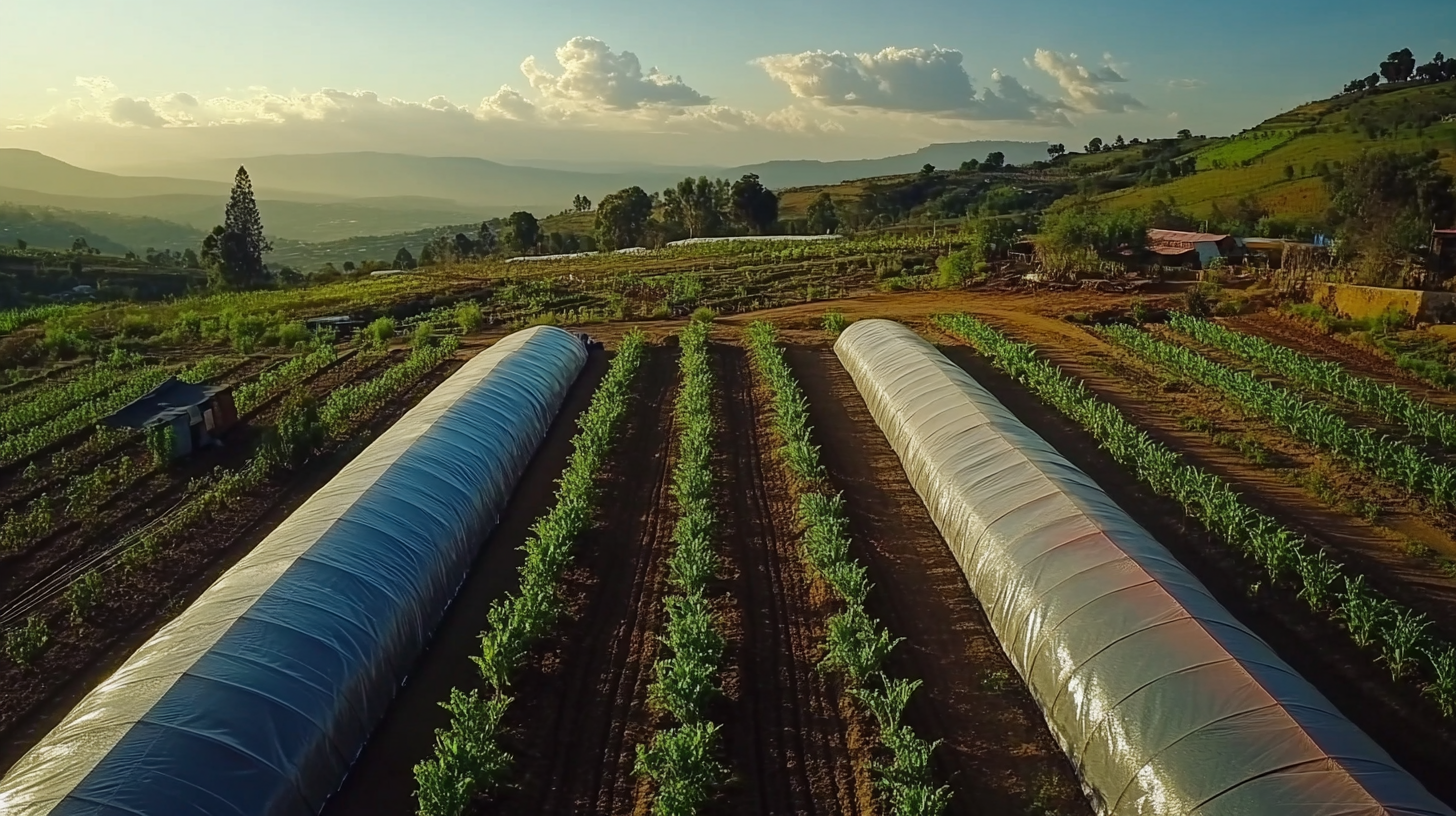
Innovative Advantages of Tunnel Greenhouses for Sustainable Agriculture
As the global population continues to grow, reaching an estimated 9.7 billion by 2050 according to the United Nations, the demand for efficient and sustainable agricultural practices has never been more critical. Tunnel greenhouses have emerged as a pioneering solution to meet these demands, offering a variety of innovative advantages for sustainable agriculture. According to a report by the Food and Agriculture Organization (FAO), controlled environment agriculture, including tunnel greenhouses, can increase crop yields by 20-50% compared to traditional farming methods. These structures not only maximize land usage but also enhance water efficiency, reducing consumption by up to 50%. Additionally, with the capacity to extend growing seasons and protect crops from adverse weather conditions, tunnel greenhouses represent a pivotal advancement in the quest for food security and environmental stewardship. Embracing this technology may be essential for farmers striving to optimize productivity while minimizing their ecological footprint.

Advantages of Tunnel Greenhouses in Enhancing Crop Yields by 30% Compared to Open Fields
Tunnel greenhouses are proving to be a game-changer in sustainable agriculture, particularly in enhancing crop yields by up to 30% compared to conventional open fields. The enclosed environment of tunnel greenhouses optimizes growth conditions such as temperature, humidity, and light, crucial for high-value crops like strawberries and raspberries. With the recent surge in strawberry prices in Russia, driven by economic and geopolitical factors, the demand for efficient growing methods is at an all-time high. Tunnel greenhouses not only provide a stable growing environment year-round but also protect crops from adverse weather and pests, contributing to a more reliable harvest.
In addition to improving yields, tunnel farming significantly reduces the need for land and water, making it an attractive option for farmers with limited resources. This is especially relevant for urban agriculture, where optimizing space and resource use is vital for sustainability. By employing advanced fertigation management practices, farmers can ensure that water and nutrients are efficiently delivered to plants, further boosting productivity in rooftop greenhouses. As Lebanon seeks to enhance food safety and security through innovative agricultural practices, tunnel greenhouses emerge as a critical solution to meet both local and global food demands effectively.
Cost-effectiveness of Tunnel Greenhouses: Reducing Energy Consumption by 40%
Tunnel greenhouses have emerged as a transformative solution in sustainable agriculture, particularly due to their remarkable cost-effectiveness. By utilizing a controlled environment, these structures can significantly reduce energy consumption, achieving savings of up to 40% compared to traditional greenhouse systems. The design of tunnel greenhouses allows for optimal sunlight penetration and natural ventilation, minimizing the need for artificial heating and cooling. This not only reduces operational costs for farmers but also lowers their carbon footprint, promoting environmental sustainability.
In addition to energy savings, tunnel greenhouses enhance resource efficiency. With improved climate control, farmers can extend their growing seasons and increase crop yields, leading to better economic returns. The reduced reliance on energy also translates to a more resilient agricultural system, adaptable to fluctuations in energy prices and climate conditions. Therefore, investing in tunnel greenhouses not only prepares farmers to meet today’s sustainability challenges but also positions them for future economic stability in an increasingly eco-conscious market. This innovative approach represents a crucial step toward a more sustainable and profitable agricultural landscape.

Mitigating Climate Impact: How Tunnel Greenhouses Lower Water Usage by 50%
Tunnel greenhouses are emerging as a game-changer in sustainable agriculture, particularly in their ability to significantly reduce water usage. According to a report from the Food and Agriculture Organization (FAO), traditional farming methods can lead to water consumption rates as high as 60% due to evaporation and runoff. In contrast, tunnel greenhouses can lower water usage by up to 50%, representing a pivotal shift towards more efficient farming practices. This reduction is primarily achieved through improved microclimates and controlled irrigation systems that minimize waste.
Moreover, a study published in the Journal of Cleaner Production indicates that the covered environment of tunnel greenhouses not only conserves water but also promotes higher crop yields by optimizing growing conditions. The absence of heavy rainfall and harsh weather elements helps farmers maintain consistent moisture levels in the soil, which is essential for plant health. As climate change continues to challenge agricultural sustainability, these structures provide an innovative solution for reducing water footprint while ensuring food security and resilience in various climatic conditions.
The benefits extend beyond water conservation; tunnel greenhouses also mitigate climate impact by reducing the carbon footprint associated with traditional farming practices. The controlled environment allows for year-round production, thereby decreasing the reliance on external water sources and minimizing the energy needed for irrigation. Given that agriculture consumes nearly 70% of the world's freshwater, adopting tunnel greenhouses could play a crucial role in building a more sustainable future for the industry.
Innovative Advantages of Tunnel Greenhouses for Sustainable Agriculture - Mitigating Climate Impact: How Tunnel Greenhouses Lower Water Usage by 50%
| Feature | Tunnel Greenhouses | Traditional Greenhouses |
|---|---|---|
| Water Usage | 50% Reduction | Standard Consumption |
| Temperature Regulation | Enhanced Control | Less Control |
| Soil Conservation | Better Quality | Degradation Risk |
| Pest Management | Natural Barriers | Higher Pest Incidence |
| Crop Yield | Increased Output | Variable Output |
| Cost Efficiency | Lower Overall Costs | Higher Operational Costs |
Extending Growing Seasons: The Role of Tunnel Greenhouses in Year-Round Production
Tunnel greenhouses have emerged as a transformative solution in sustainable agriculture, particularly in extending growing seasons. Their design provides a controlled environment that shields crops from harsh weather conditions, allowing for year-round production. This adaptability not only protects plants from extreme temperatures but also mitigates the risks associated with pests and diseases, fostering healthier crops and reducing the need for chemical interventions.
Moreover, tunnel greenhouses optimize resource use, making them ideal for sustainable practices. By retaining heat and moisture, they can enhance water conservation and reduce the dependency on fertilizers. Farmers can extend their harvests far beyond traditional seasons, giving them the flexibility to grow a wider variety of crops throughout the year. This adaptability not only increases food security but also contributes to local economies by supplying fresh produce consistently, even during off-peak seasons. The innovative design of tunnel greenhouses, therefore, presents a powerful tool for farmers aiming to embrace sustainable practices while ensuring a stable and diversified yield.

Healthier Crops: Evaluating the Nutritional Benefits of Produce from Tunnel Greenhouses
Tunnel greenhouses have emerged as a game-changer for sustainable agriculture, offering several nutritional benefits that are capturing the attention of growers worldwide. A recent survey highlighted that vegetable growers are feeling optimistic about the season ahead, with plans to either boost production or maintain existing acreage. The controlled environment of tunnel greenhouses allows for year-round cultivation, significantly improving the nutritional value of produce. Studies indicate that crops grown in such facilities tend to have higher concentrations of essential vitamins and minerals, which is critical as consumers increasingly seek healthier food options.
Moreover, innovative practices within tunnel greenhouses, such as soil steaming, are proving to be effective in enhancing crop health and mitigating diseases. This method targets soil-borne threats and ensures that vegetables grow in a disease-free environment, further maximizing their nutritional output. As the industry pivots towards sustainability, these greenhouses also utilize efficient water and resource management strategies, reducing waste and lowering the carbon footprint associated with traditional farming methods. The strides in tunnel greenhouse technology not only pave the way for healthier crops but also create an optimistic outlook for the agricultural sector as it embraces sustainability.
